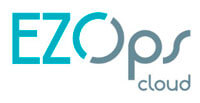Laravel has emerged as one of the most popular PHP frameworks in recent years. Its robust features and elegant syntax have made it a top choice for developers worldwide. In this article, we will delve into the key features that make Laravel stand out in the world of web development.
Introduction to Laravel
Laravel is an open-source PHP web framework that follows the Model-View-Controller (MVC) architectural pattern. It provides a simple and expressive syntax, aiming to make web development an enjoyable and creative experience. With its vast ecosystem and strong community support, Laravel has become a go-to framework for building web applications.
Elegant Routing
Routing in Laravel is simple yet powerful. It allows developers to define routes using a concise and expressive syntax. Named routes and route parameters make it easy to generate URLs and link between different parts of the application. Laravel’s routing system provides flexibility and control, enabling developers to create clean and SEO-friendly URLs effortlessly.
Blade Templating Engine
The Blade templating engine sets Laravel apart from other PHP frameworks. It offers a clean, simple, and intuitive syntax for working with views. Blade templates allow for easy data binding, layout inheritance, and the inclusion of reusable components. With features like conditional statements and loops, Blade empowers developers to build dynamic and responsive web interfaces with ease.
Eloquent ORM
Laravel’s Eloquent ORM provides an elegant, expressive way of interacting with the database. It allows developers to define database models and relationships using straightforward PHP syntax, without the need for complex SQL queries. Eloquent simplifies common tasks such as retrieving, inserting, updating, and deleting records, making database interactions seamless and intuitive.
Powerful Authentication and Authorization
Laravel comes with a built-in authentication system that makes implementing user authentication a breeze. It provides secure and easy-to-use methods for user registration, login, and password reset. Additionally, Laravel’s robust authorization features enable developers to define access control logic with ease, ensuring that only authorized users can access certain parts of the application.
Artisan Console
Artisan is Laravel’s command-line interface, offering a wide range of tools to automate repetitive tasks. From database migrations and seedings to creating custom commands, Artisan simplifies common development tasks and boosts productivity. Developers can also create their own custom Artisan commands to streamline their workflow and tailor it to their specific needs.
Seamless Integration with Mail Services
Laravel simplifies sending and receiving emails through its clean and simple API. It provides drivers for SMTP, Mailgun, SparkPost, Amazon SES, and other mail services, allowing developers to seamlessly integrate email functionality into their applications. With support for sending notifications and queuing emails, Laravel streamlines the process of managing email services.
Conclusion
In conclusion, Laravel’s rich feature set, elegant syntax, and strong community support make it a top choice for web application development. Its expressive routing, powerful ORM, intuitive templating engine, and robust toolset through Artisan make it a standout framework for developers. With Laravel, building modern, secure, and scalable web applications has never been more enjoyable.
